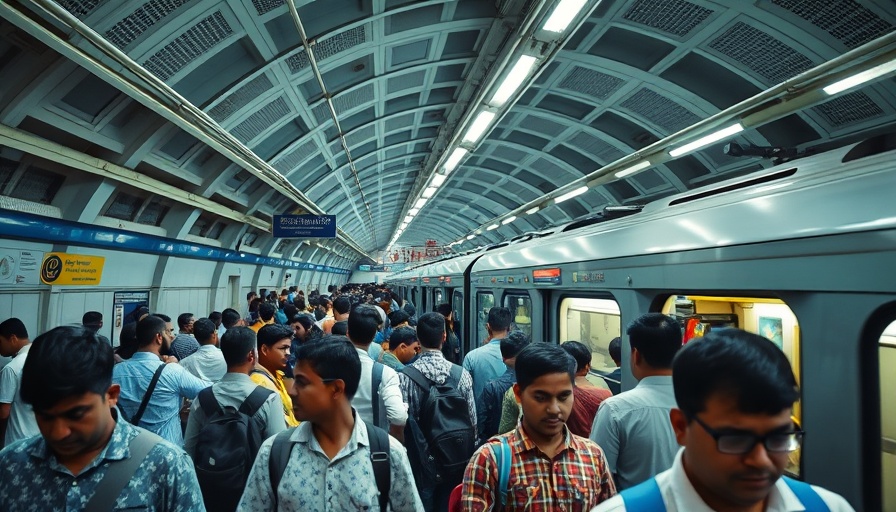
Encouraging Metro Adoption Through Behavioral Insights
The recent collaboration between the Bangalore Metro Rail Corporation Limited (BMRCL), Bengaluru Metropolitan Transport Corporation (BMTC), and the Toyota Mobility Foundation (TMF) exemplifies a forward-thinking approach to urban transportation. Named “STAMP: Nudging Commuter Behaviour,” this initiative aims to shift commuter habits from private vehicles to public transport, especially as special metro services are set to enhance connectivity in areas like Electronic City—a pivotal employment hub in Bengaluru.
Transforming Urban Mobility: Insights from Behavioral Science
The utilization of behavioral science in encouraging public transport adoption marks a significant shift in the way cities address transportation challenges. This initiative leverages data-driven insights to address commuter reluctance caused by high last-mile costs and associated wait times. Findings indicate that wealthier commuters prefer personal vehicles over metro services, due in part to these costs. By focusing on those particular commuting patterns and preferences, STAMP intends to make public transport a more appealing option for a broader demographic.
Comparative Analysis: Bengaluru vs. Other Indian Cities
While Bengaluru has made strides in metro development, commuters face steeper last-mile connectivity costs compared to cities like Nagpur and Delhi. This discrepancy highlights the necessity of localized solutions. Previous STAMP applications in cities like Hyderabad and Kochi demonstrate that understanding unique urban landscapes can illuminate pathways to resolving similar connectivity hurdles. Knowing that affluent commuters prioritize their comfort over cost, TMF seeks to address these behavioral barriers through innovative approaches.
The Future of Public Transport: Predictions and Opportunities
As STAMP expands its initiatives, it paves a path forward for urban planners and policymakers alike. Predictions highlight a future where cities integrating behavioral science into their transport policies may see increased ridership and reduced congestion. There’s potential for further innovation through technology, such as app-based support for carpooling and first-mile last-mile solutions, which encourages sustainable commuting habits. By fostering a change in mindset and experience, TMF’s initiative could inspire a broader shift across other Indian cities.
Empowerment Through Information: What This Means for You
Understanding the trends in urban mobility can equip dealership owners and general managers in the automotive sphere with better insights into consumer behavior and preferences. As public transport gains favor, there may be implications for car sales and services. The shift toward sustainability may prompt dealerships to reconsider their positioning and the services they offer, particularly as consumer choices evolve.
Conclusion: Engage with Sustainable Urban Mobility
The approach taken by the Toyota Mobility Foundation through the STAMP initiative signifies aligning future urban transportation with behavioral insights. For automotive professionals and dealership owners, staying informed and adapting to these changes is crucial for staying relevant in a transitioning market. Embracing these insights will not only benefit communities but also enhance business strategy in response to evolving consumer demands.
 Add Row
Add Row  Add
Add 

 Add Row
Add Row  Add Element
Add Element 




Write A Comment